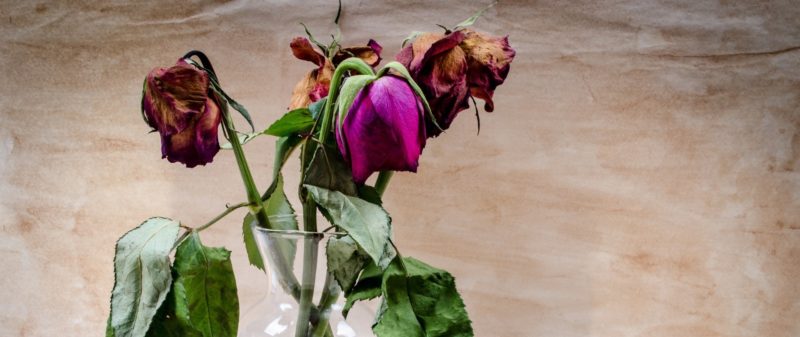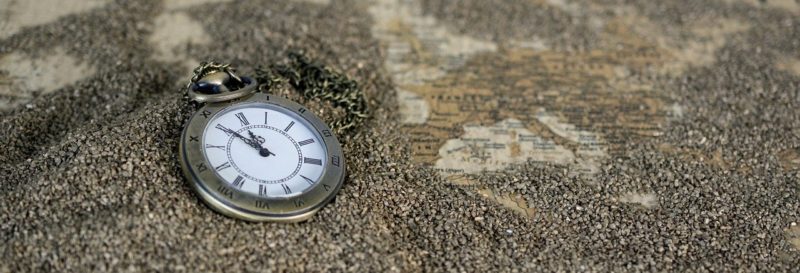I’m grieving, and not in a way I found immediately obvious. Please allow me to explain.
A few years ago, my stable relationship ended. The person who had filled my needs for love, connection, companionship, and touch was gone. I was so used to having the person there and those needs filled, that when they left, it was jarring. Gone was my predictable world and this uncertainty brought up suffering. I was grieving what I once had.
Perhaps you’ve been there before? Even if you were the one who ended the relationship, you likely were still grieving the comfortable certainty you once had for those very human needs for love, connection, and companionship.

“Think positive,” your friends might tell you, “there are more fish in the sea.” Part of you knows that there will be more love out there to find, and yet no matter how much you distract (or even go on dates), something still doesn’t feel quite right. It could manifest as a feeling of sadness, anger, or even just an uncomfortable knot in your chest. I’m quite familiar with that knot that sits just underneath my heart.
There are lots of reasons that suffering happens after a relationship ends, and one is grieving the certainty of that person being there to fill your cup. But I’m not here to talk about relationships. I’m here to talk about something else I think many of us have been experiencing, which looks similar.
Two months ago, my life was pretty comfortable. I was getting pretty effective at filling my human needs for growth, learning, connection, play, rest, relaxation, and dreams/goals. I felt happy and excited by planning out my future then getting to experience my plans.
And then the Corona Virus hit, all my plans started getting canceled, and I felt frustrated and powerless. From lunches with friends to family vacations & meetups & conferences & workshops. I’d think, “A little longer and things will be more certain.” I’d check the news in the morning and end up disappointed again. I’d look at events coming up, hoping night after night that they’d not cancel, only to have them cancel and add to my feeling of anger.

Part of me still wants things to go back to the way they were. Part of me is still grieving the way things used to be, my loss of certainty, and I have that same sort of lump in my chest.
I can easily dismiss this part of me. “At least I have a job,” “At least my family is healthy,” “At least I have a place to live and food on my table.” Just like the friends who tell me, “there are more fish in the sea,” it doesn’t help what’s going on. It doesn’t help with the part of me that is grieving my loss of certainty. I realize now that by allowing myself to grieve, I can begin to accept my new reality.
However, I’m not in acceptance yet. I still want what I had before. Just like the end of a relationship, I have to finish grieving.
- Yes, I can replace real life with the virtual.
- Yes, I can be grateful for what I have.
- Yes, I can be optimistic and realistic about the future.
- Yes, I know if I embrace uncertainty, I can be surprised by what does show up.
But I am not there yet. A part of me is still grieving what my life was like two months ago, and that is okay.
If you’re grieving certainty, I’d love to hear that I’m not alone. If you’re here to tell me there are “more fish in the sea,” or to “be optimistic”, please don’t bother.





I am definitely grieving the certainty. Everything that everyone has worked for could be gone. I don’t know when my daughter will go back to school. What about our jobs? We’re employed now, but how long will that last? Worse, will we get sick? What will happen to my daughter if my wife and/or I die?
When will life return to normal? Will it ever? And when will that certainty return?
These are the things I think about. You aren’t alone in your grief.
As a Taurus and a program manager, it’s extremely agitating for me when plans change. What’s even more frustrating is that these things are out of my control to correct. I hadn’t thought of this as grieving before, but now that I read this, I definitely feel this as a loss. A loss of what we had, a loss of what we planned to do, and a loss of the genuine connection that comes when sitting with our friends and colleagues and having a meal or beverage together.
I’m a retired project manager. I’m drawn to organizing and planning. In retirement I’m engaged in many groups, entertain a great deal, and travel frequently. All these things have come to a halt, and some days I feel very sorry for myself. You see, my first grandchild was born in Dallas on March 28 and I’m not yet able to hold her. Yes, I have seen her picture. Yes, I’ve heard her make her baby sounds on video, Honestly, my feeling is “this is not fair” – as if I’m the only one having a rough time. While I have much to appreciate and a great deal of perceived security and privilege, I find myself feeling waves of grief at unexpected moments. And, then the feelings pass, and I right myself and figure all I can do is move through this life.
And, I continue to reflect on quotes from “When Things Fall Apart”, which I read many many years ago. It helps me feel less alone, and more a part of humanity.
“Things falling apart is a kind of testing and also a kind of healing. We think that the point is to pass the test or to overcome the problem, but the truth is that things don’t really get solved. They come together and they fall apart. Then they come together again and fall apart again. It’s just like that. The healing comes from letting there be room for all of this to happen: room for grief, for relief, for misery, for joy.”
― Pema Chödrön, When Things Fall Apart: Heart Advice for Difficult Times
I’ve been there. Lisa Feldman explains how we are dependent on other people to regulate our cognitive state. When you lose someone, a large part of the pain is your body’s dependence on that person to maintain yourself. Without it you are missing a key element you body depends on. Being alone or lonely is more dangerous for you than smoking for this reason